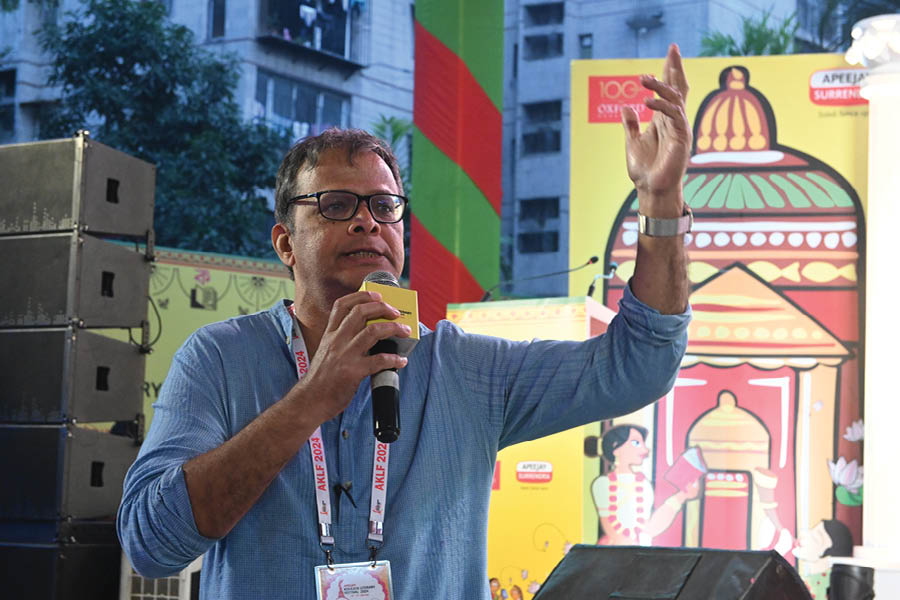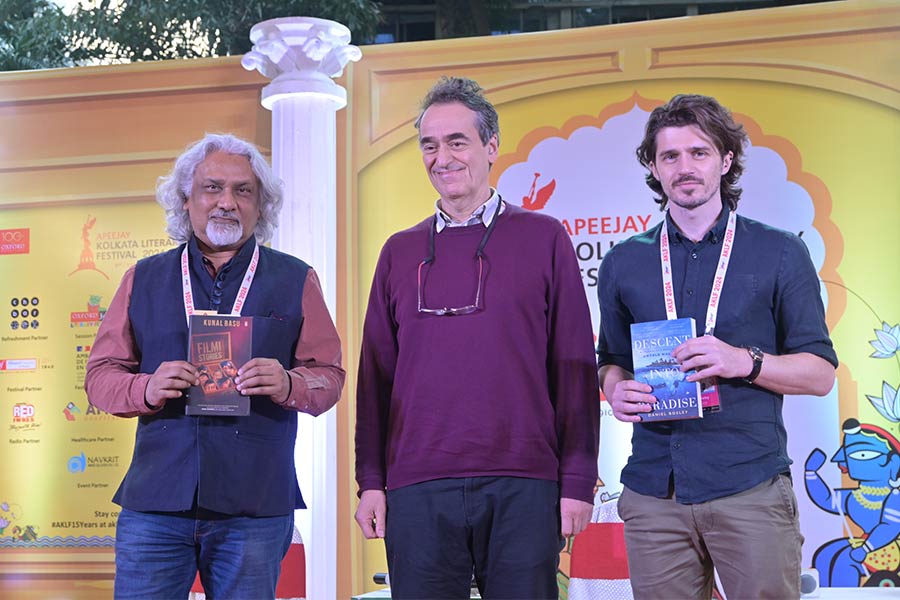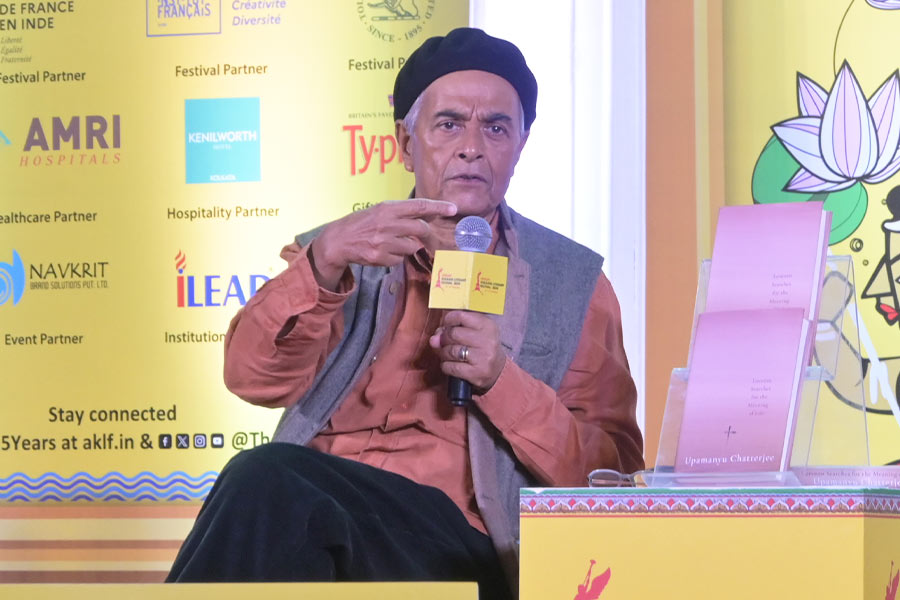The best writers rarely make for interesting characters, least of all at literary festivals. The conjurers of the most heart-wrenching lines on the page can be shy, reserved, even arrogant in person. Not Jerry Pinto, though, one of the most admired Indian writers in English and the emperor of energy.
At the Apeejay Kolkata Literary Festival (AKLF) 2024, Pinto, a recipient of the Sahitya Akademi Award alongside a bag of other honours, was everywhere. Having covered every inch of cloth on stage (during his session with Arshia Sattar on the evening of February 11), Pinto came down on the grass of Allen Park and got the entire audience on its feet (quite literally) to chant prayers (which he has translated) with him. At 57, Pinto’s range of work spans novels, biographies, poems, journalistic publications and a whole host of translations. But for those who have read him, his words transcend genres and forms to merge into an inimitable voice that feels intimate but never insipid.
Ahead of his session, My Kolkata caught up with Pinto at the AKLF author’s lounge (where he took his seat right next to a dustbin!) to delve deeper into his beliefs, processes and goals. Edited excerpts from the conversation follow.
‘The Bharhut gallery of the Indian Museum is magnificent and electrifying’
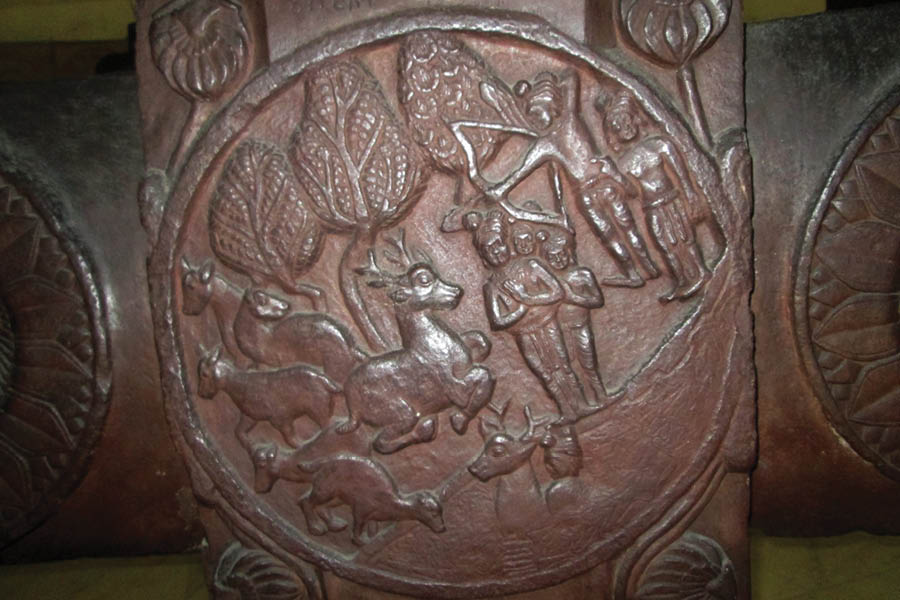
Pinto makes it a point to visit the Bharhut gallery of the Indian Museum whenever he is in Kolkata TT archives
My Kolkata: Tell us a bit about your relationship with Kolkata and what you make of Kolkata’s literary culture.
Jerry Pinto: My connection to Kolkata goes back three to four decades. I had family here as my cousin was working at the Indian Coast Guard in Kolkata. I remember College Street being one of the wonders of Kolkata, wandering past those shops and buying loads of books at nice, throwaway prices. I remember going to the Indian Museum and checking out the art and sculpture over there. Nowadays coming to Kolkata is a pilgrimage. I always try coming to the city no matter how short the visit and make at least one visit to the Bharhut gallery of the Indian Museum. It’s magnificent and electrifying. As for the literary scene, it’s quite obvious that Kolkata has a vibrant literary scene with the Book Fair and multiple literary festivals. It has a host of resident poets and authors. And then there’s Naveen Kishore and Seagull Books. Kolkata is blessed.
To compare and contrast somewhat, what has been the most profound way in which Mumbai has shaped you as a writer?
What I love about Mumbai is that it’s an intensely democratic city. Its poets and writers from the earlier generations were completely available to us. You could, without an appointment, have dropped in to meet Nissim Ezekiel, given him a poem to read and he’d tell you what he thought. You can bump into Adil Jussawalla while walking down the street. I remember running into Gieve Patel and another man once. Gieve Patel turned to me and said: ‘This is AK Ramanujan and we’re going to see Nissim’. I had work to do so I told Ramanjuan how much I loved his literature and left. Later on, I regretted not stopping whatever I was doing and just listening to three of the most pre-eminent poets in the nation, in the world, talking to each other. Mumbai has so many writers writing in so many languages. Networks are so close and intimate and they give you the benefit of their attention.
At the same time, Mumbai or Bombay will always be home for me. And home, by its nature, can’t be compared. In Kolkata, I’ll always be treated well because I’m a visitor and we always treat our visitors well. I have no idea how that would change if I were to live here!
‘There’s always the question of what it would be like to totally, comfortably, always belong’
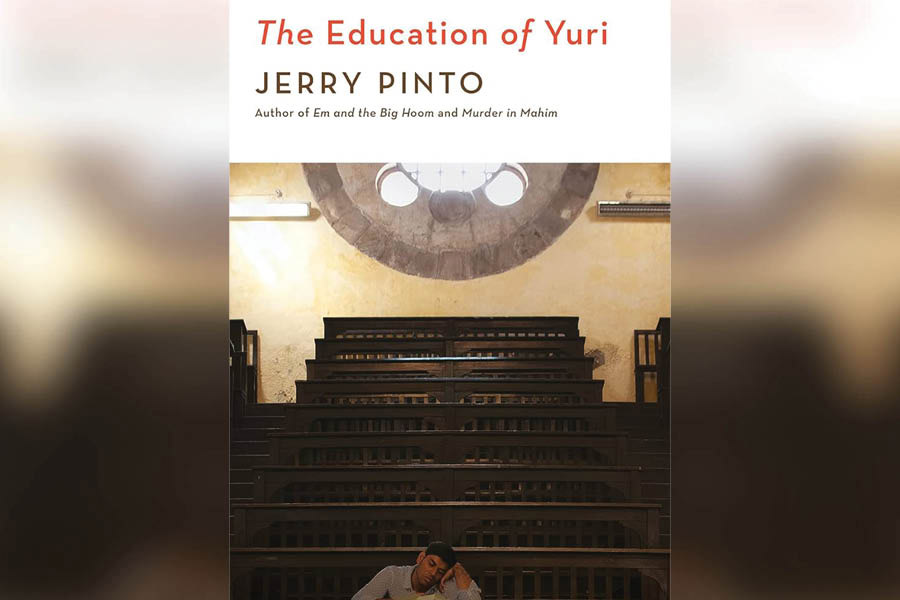
Pinto’s ‘The Education of Yuri’ was published in September 2022
Your latest novel, The Education of Yuri (2022), is essentially a bildungsroman that captures the journey of a teenager who does not fit into any conventional brackets. Is the sense of not belonging anywhere the hardest but best kind of education?
Yes, Yuri has a sense of not belonging. He’ll always be the outsider looking in. That way, he has a view of the situation and even a view of himself in the situation that’s invaluable to him. He can see himself working, he can see what’s happening. Whereas if you’re embedded in the situation, you tend to take your position for granted. It’s also the case for writers… [Addressing Anjum Katyal, author and translator, who is sitting a few metres away] Anjum, have you ever felt you belonged? [She replies: Sometimes but temporarily.] Yes, temporarily. It’s a fleeting, evanescent moment when you belong. All of us actually find belonging in certain moments. But the rest of the time we’re watching, listening and experiencing. Right now, there’s a part of me watching myself and saying calm down. But that’s the gift of being a writer, there’s a part of you that experiences alienation and it’s a feeling that’s double-edged. Because there’s always the question of what it would be like to totally, comfortably, always belong.
‘Leela Naidu wasn’t the kind of person who was going to take Bollywood seriously. But Helen never made that mistake’
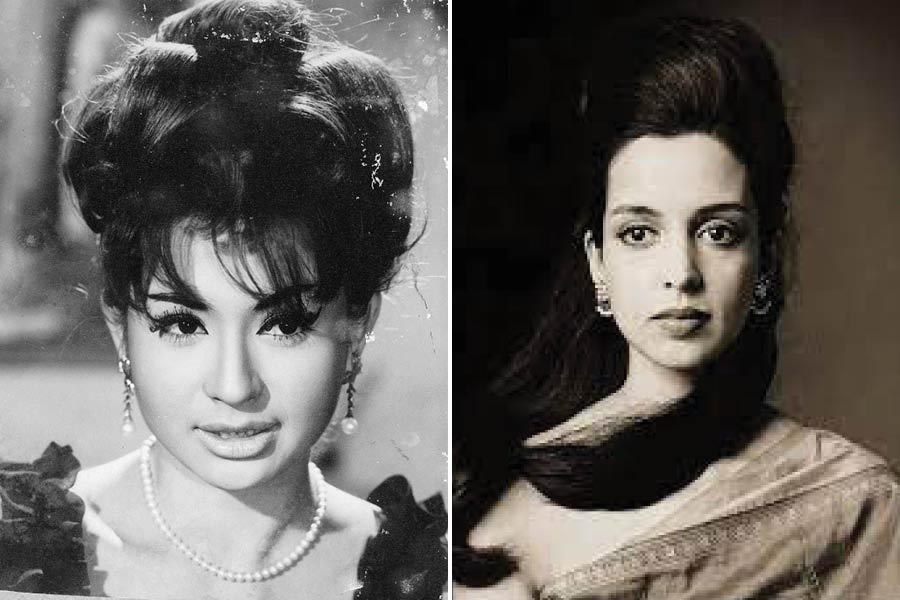
Helen (left) and Leela Naidu Wikimedia Commons
You have written two books about celebrities, starting with Helen: The Life and Times of an H-Bomb (2006) and then Leela: A Portrait (2009; co-authored with Leela Naidu). Did you find any parallels between the processes of documenting celebrities or between the subjects themselves?
As women, both of them were outsiders. Both of them were hybrids. One of them was Anglo-Burmese (Helen) and the other (Leela Naidu) was Franco-Indian. Leela wasn’t the kind of person who was going to take Bollywood seriously. But Helen never made that mistake. She took everything seriously, however ridiculous it was. These positionalities and marginalities about them interested me. When you’re documenting a big star, there’s so much to defend and protect. The narrative that emerges is inevitably manicured, adjusted to perception. But in the case of both Helen and Leela Naidu, there was territory I could examine myself. I enjoyed working on both the books tremendously, but in very different ways. Meeting Leela in her house meant that you had all these artists on the walls, French coffee being served, canapes with asparagus for breakfast and what not! With Helen, it was this down-to-earth energy of ‘let’s get the punters up and screaming and throwing coins’. It shows how two different, but co-existing worlds can thrive in the same city at the same time.
‘I’m not letting my biography get in my way’
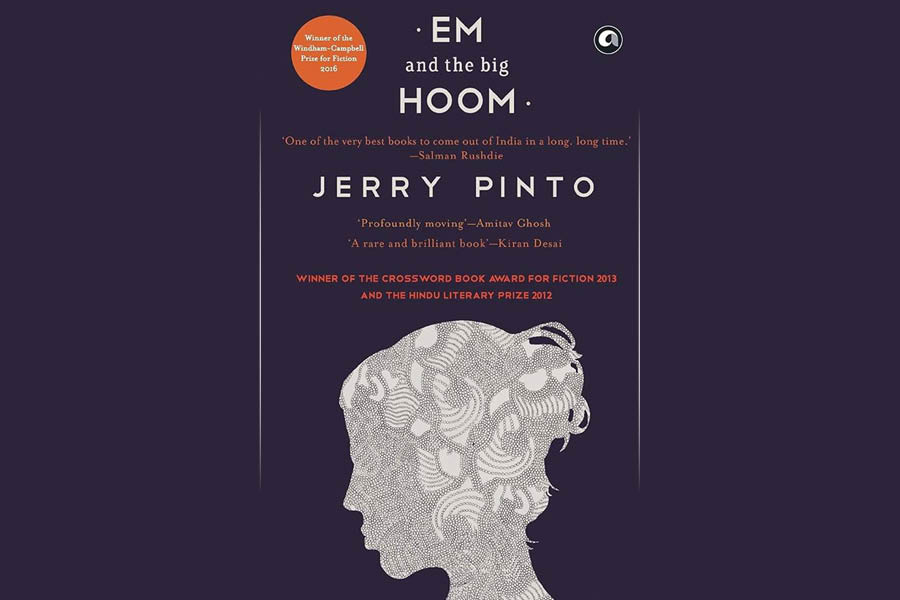
‘Em and the Big Hoom’ is widely considered to be one of the best novels in Indian English
Em and the Big Hoom, widely considered to be your magnum opus till date, came out almost 12 years ago. Have you ever felt that you cannot top it? And would you rate it as your most challenging book to write, since it drew heavily from your own upbringing?
After Em and the Big Hoom, a friend asked why I was writing Murder in Mahim (2017). Why? Because I wanted to. I put all my faith and freedom in doing the next thing. If I feel I want to write another novel or a poem, I’ll write it. If I want to translate Tukaram, I will. I get to decide. Imagine saying I wrote this novel and I can’t top it. I’m not that writer. I’m the writer who’ll write another novel that will disappoint you but won’t disappoint me. I’m not letting my biography get in my way.
In terms of Em and the Big Hoom being the most challenging, yes it was. Totally. It was a mountain to climb. I had no knowledge of what I was doing. A few weeks before it came out, I was wondering why I’ve made the family (the Mendeses) Roman Catholics. Who knows Roman Catholics here? In Delhi, they call me Pintu ji because they haven’t even heard the name Pinto. Maybe the Mendeses should have been the Khannas. But then, I don’t know how Khannas work. I was once thinking of writing a book about a Hindu boy and I asked one of my Hindu friends: What does your dad say when he leaves for work in the morning? He said he says nothing, he just leaves. My father would kiss my mother, say bye, give us a hug. There was a farewell ritual. Another friend of mine and their family would say bye if they left the room.
Internally, there was a lot of insecurity at the time of Em and the Big Hoom. I don’t know what I had done right. Today, when I write a novel, I know when I’m bad. Editing has become easier, even though the insecurity is still there. I’ve come to accept the act of building a bridge and walking it at the same time.
‘Jerry, get up. You don’t have to write a lot, just write three lines’
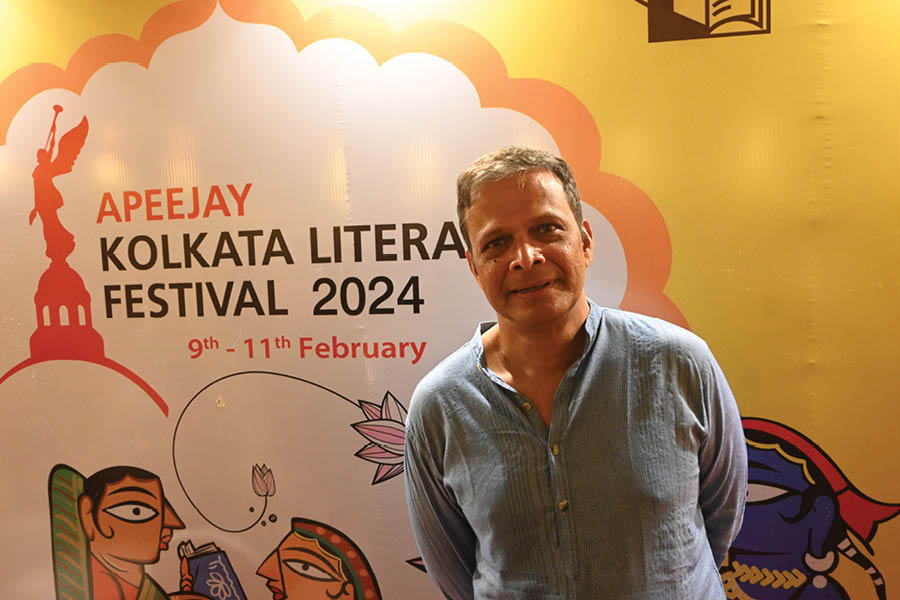
“Most of the time, I’d rather be reading than writing,” says Pinto Amit Pramanik
How do you maintain discipline as a writer and as a reader?
If you enjoy playing cricket, nobody has to make you play cricket. You do it whenever you get the chance. It’s the same with writing for me. I like writing. But, of course, there are days when I don’t feel like writing. When the words don’t come, when I feel lazy, when there’s inertia. Days when there’s depression. On such days, I talk to myself and say: ‘Jerry, get up. You don’t have to write a lot, just write three lines. That’s enough’.
By the time I’ve written three lines, I can go to five or seven. I take it one word at a time. It’s stupid, but it works for me. It’s like being a parent to a recalcitrant child who doesn’t write.
Reading, though, has never been a problem. I have very bad eyesight, but even in dim light, I’ll still be reading. I came to Kolkata for two days with four books, and I’m leaving with 17. I can’t remember a time when I didn’t want to read. Most of the time, I’d rather be reading than writing.
How do you feel the written word and reading itself needs to evolve to stay relevant in the age of streaming, social media and Artificial Intelligence (AI)?
Even on social media, there are words, right? But they are different kinds, yes. Different modalities of operations. I don’t think reading codex is intellectually or morally superior. Yes, in a codex, there’s a higher chance that the words have been worked on with more care. So, you could learn the craft of a writer or sharpen your mind if you’re a reader. That might not happen on social media. But I don’t know for sure because we don’t have any studies yet. But the idea is that you should read wherever and whatever you want to. I’d hate it if someone was told to read my book because it was ‘good’ for them. I’m fine with people having choices. I’m all about choices.
You are someone who writes novels, poetry as well as journalistic columns. Do you feel there are different versions of yourself that need to be tapped into when you are writing in different forms or do you see writing as one complicated but continuous whole?
There’s just one big, sorry mass of energy and enthusiasm that goes plunging into words, grabs bits of them and smacks them down. There’s no turning on and off. Often, I don’t know when I have started. If it’s a journalistic piece, then yes, I know there’s a certain format and a deadline. I’ve got to make it look like an article and send it out. But when I’m writing for myself, I want it to be a poem all the time. It often turns out to be prose. Or it turns out to be dead words, which have to be edited and thrown out because they don’t mean anything. I’ve done journalism since I was 21. So, there’s a facility that turns on. But for the rest of it, I don’t know what I’m doing. It’s all about discovery, which is the best part.
‘I want my books to open and stardust to burst out!’
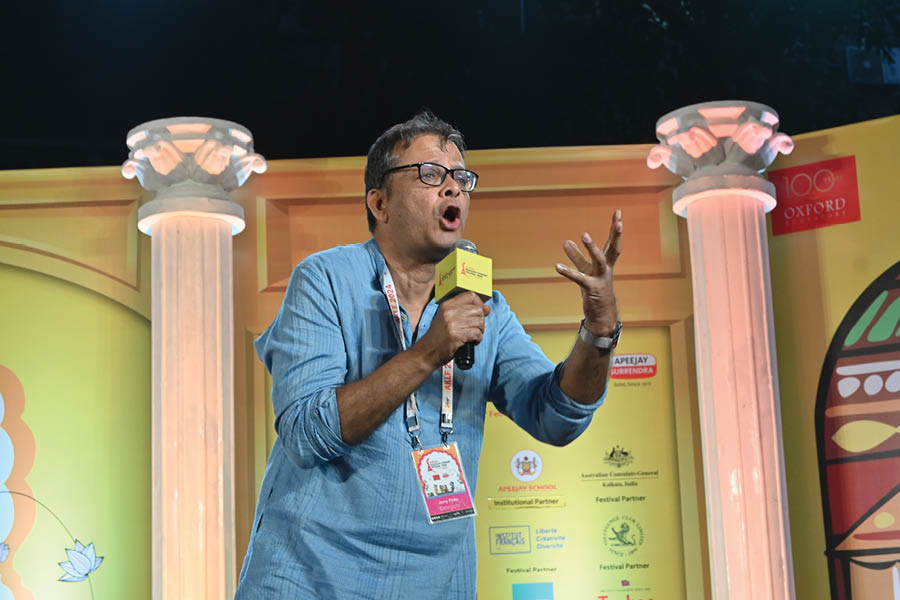
Pinto believes in playing the ‘big game’ Amit Pramanik
Lastly, what motivates you to keep writing? What are you still chasing?
I’m chasing the Nobel Prize in Literature. I’m chasing immortality. It’s the stupidest thing to do, but I want to be read 300 years from now. I want to write magnificently. I want people to look at me and say, how does he do that? I want my books to open and stardust to burst out! Why want small sh*t? Why want 20,000 copies sold? Why want film rights sold? Play the big game, play immortality.
